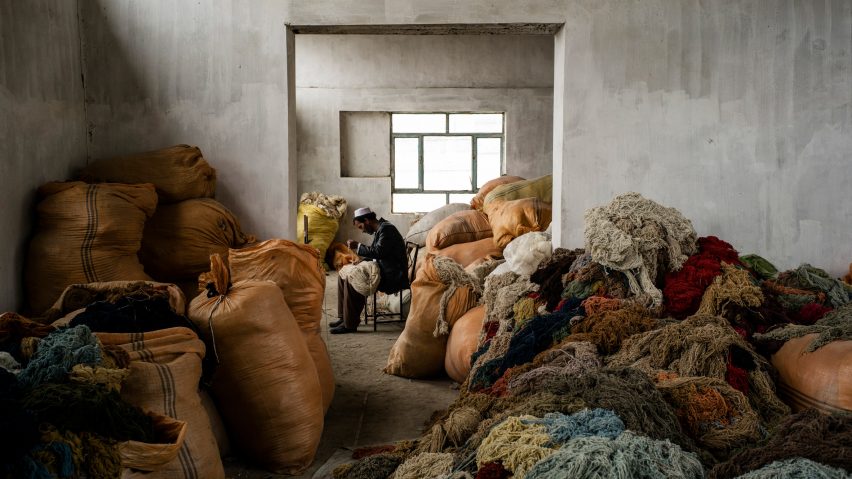
ISHKAR uses craft objects to show a different side to countries in conflict
Social enterprise ISHKAR provides a retail platform for designers and makers in countries like Afghanistan, Yemen and Pakistan. In this interview, co-founder Flore de Taisne says she hopes to change perceptions of places labelled as war zones.
"We need to tell stories of places like Afghanistan that aren't just about bombs and what you can read in the headlines," said De Taisne.
"We wanted to create a platform for artists, photographers and artisans in these places, to showcase what they do."
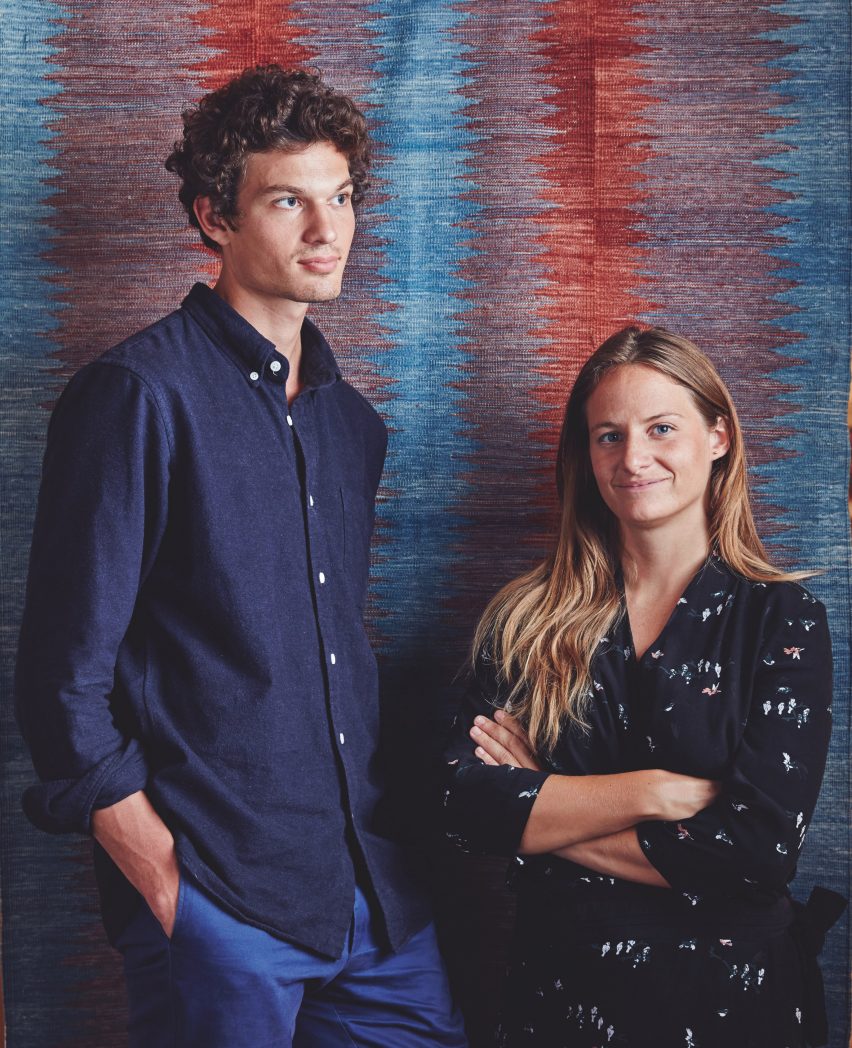
ISHKAR does this by sourcing some of the best design and craft objects that these countries have to offer, from Afghan ceramics to Syrian textiles, and marketing them to customers all around the world.
This helps outsiders to see a different side to these countries, which isn't associated with war and poverty. At the same time it helps struggling artisans to keep their craft alive, at a time when tourists no longer visit and locals increasingly opt for cheap imports.
Starting with a glassblower in Afghanistan
Before founding ISHKAR, De Taisne and co-founder Edmund Le Brun were living in Kabul, Afghanistan, working on projects with the NGO, Turquoise Mountain. As they started to learn about some of the historic crafts in the region, they saw a business opportunity.
The pair visited the workshop of Ghulam Sekhi, who was once one of many glassblowers in Herat but had since become the only one left. Discovering stockrooms full of distinctive pieces, they bought 5,000 of his glasses and used them to start their business.
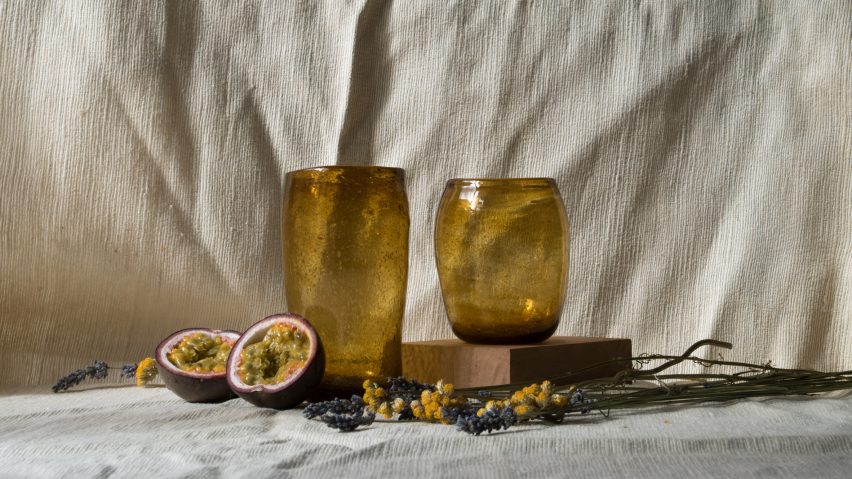
"We set up ISHKAR with the idea of promoting craftsmanship," said De Taisne. We wanted to make sure that artisans could promote the objects that they had developed."
To date, ISHKAR has sold more than 17,000 of Sekhi's glasses. As a result, the maker has been able to employ apprentices and expand his workshop.
"Meeting these craftsman – seeing what they had been developing, doing, creating, designing – changed our perception of Afghanistan, even though we had been there for three years," added De Taisne.
"What they were making was incredibly intricate, incredibly beautiful. They were things that we would want to have in our homes."
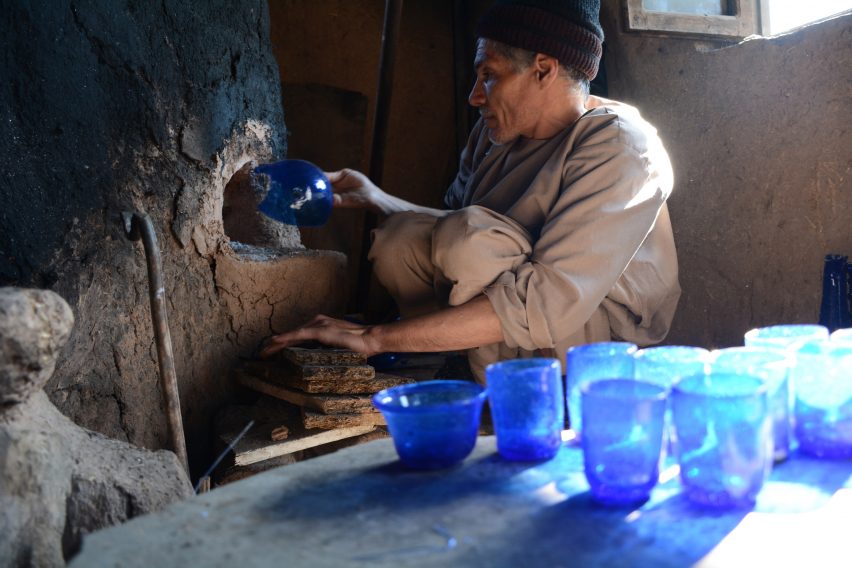
After leaving Afghanistan, De Taisne and Le Brun began to seek out craftspeople in other countries overshadowed by conflict. Among them is Zena Sabbagh, a Syrian textile artist who has set up an atelier in Beirut.
Sabbagh employs Syrian, Iraqi and Palestinian women to create hand-embroidered textiles. ISHKAR has worked with her to create various products, including a quilt and a series of pochettes.
A new approach to retail for countries in conflict
While several of the objects that ISHKAR sells are bought directly from existing stock, the company often collaborates with their designers and makers to create new products.
The founders are wary of the model where products are developed by western designers and then simply fabricated by the artisans, as they want to promote design expertise as well as manufacturing skills in these countries.
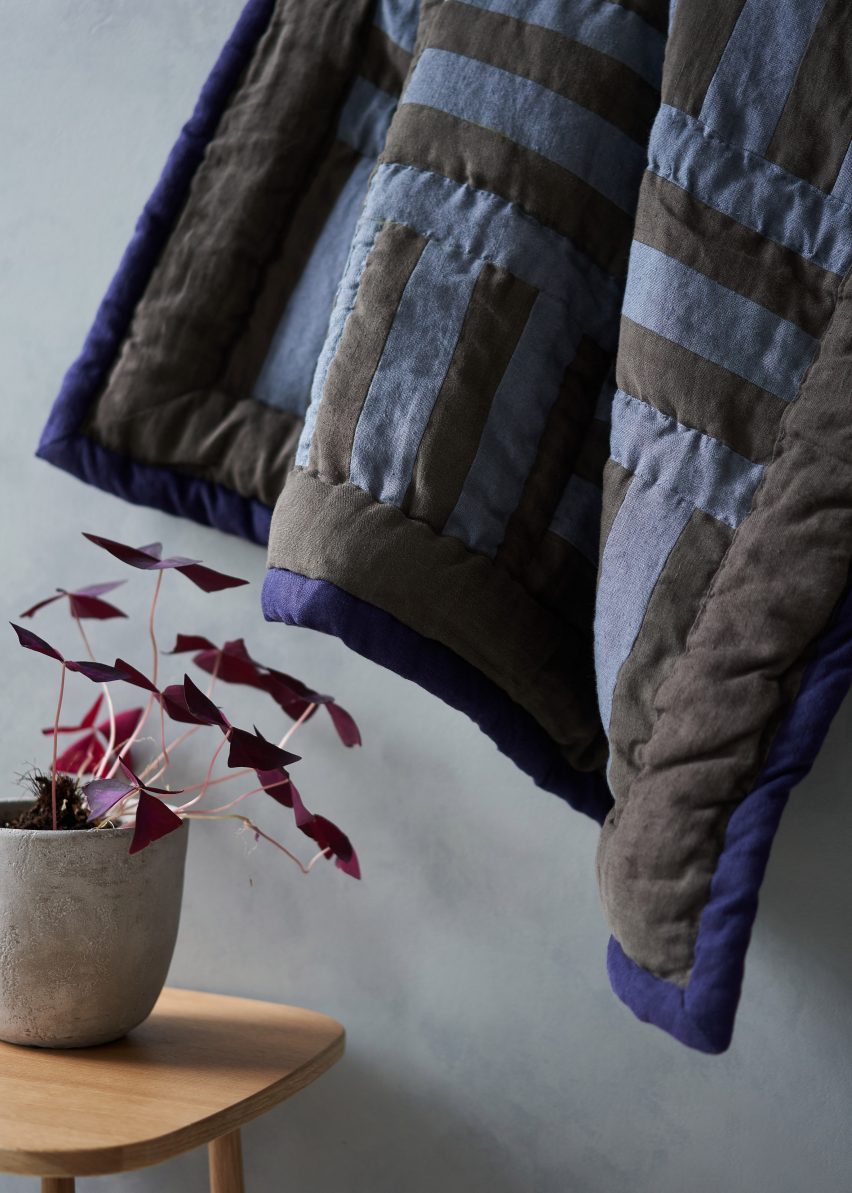
Logistics play an important role in design decisions – products need to be shipped around the world, so they need to relatively small and sturdy enough that they won't break in transit. Delays must also be anticipated, as borders can sometimes be closed as a moment's notice.
However, De Taisne insists that many of the problems they face are not that different to other retailers.
"When you're a small business, you have to deal with these kinds of things," she said. "If there is political unrest, you have to just understand that more unexpected things are going to happen."
"We don't want customers to buy out of charity"
De Taisne expresses gratitude to Turquoise Mountain and the other organisations that have made it possible for ISHKAR to work in such challenging contexts, but she highlights an important difference between the ways they operate.
While NGOs can provide craftspeople with training and skills, ISHKAR creates real business opportunities. There is no charity involved – the makers know they have to produce quality products for a collaboration to go ahead. This helps to build mutual respect between everyone involved.
"We don't want customers to go on our website and buy products out of charity; that's not changing anyone's perception," said De Taisne. "You might buy for charity once, but you don't come back to buy more."
"We hope our customer base is driven by the product design and quality."
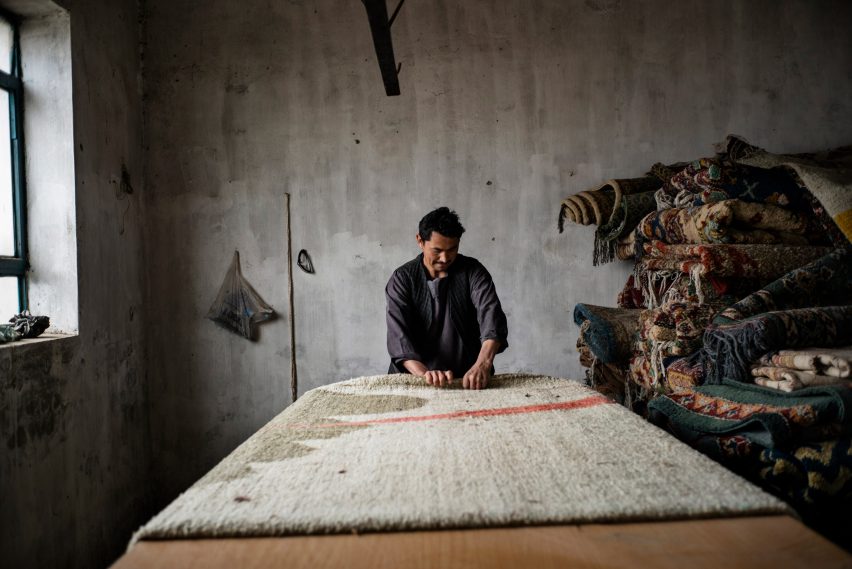
As well as selling objects, ISHKAR also has two other strands to the business, which also centre around the idea of changing perceptions.
There are events that aim to tell stories about other countries, whether that's through film screenings, panel discussions or live maker demonstrations. There are also travel opportunities, taking groups abroad to see craft production for themselves.
De Taisne hopes these activities will help to kickstart a craft renaissance in developing countries, matching the one that the west has experienced in recent years.
"Being able to appreciate the amount of work that people put into an object is always fascinating," she added. "You can really see the thumb of the maker behind these products."
Read on for an edited version of the interview transcript:
Amy Frearson: What is the ethos behind ISHKAR?
Flore de Taisne: ISHKAR is about changing people's perceptions of places. I think there is danger in a single story, but being able to participate in multiple storytellings is really gratifying.
Amy Frearson: What led you to set up the company?
Flore de Taisne: Edmund and I were both living in Afghanistan. Edmund was working for Turquoise Mountain, the Prince of Wales' charity, in Kabul, Afghanistan, looking at the restoration of the old city. I was working as a consultant for the World Bank and UN agencies, designing, implementing and evaluating projects of a range of different types, from a curriculum for the mining industry to the possibility of creating a safety net for the Afghan government.
Then, with the attacks in Paris in 2015, something clicked. Lots of people got in touch with us and started talking about how they didn't feel safe, and how we could actually be in a place where these things happen more regularly. That triggered something. We thought we need to tell stories of places like Afghanistan that aren't just about bombs and what you can read in the headlines. There are some amazing journalists that do a great job in covering these places, in showing that there is an ongoing war. But we wanted to offer another voice. We wanted to create a platform for artists, photographers and artisans in these places, to showcase what they do.
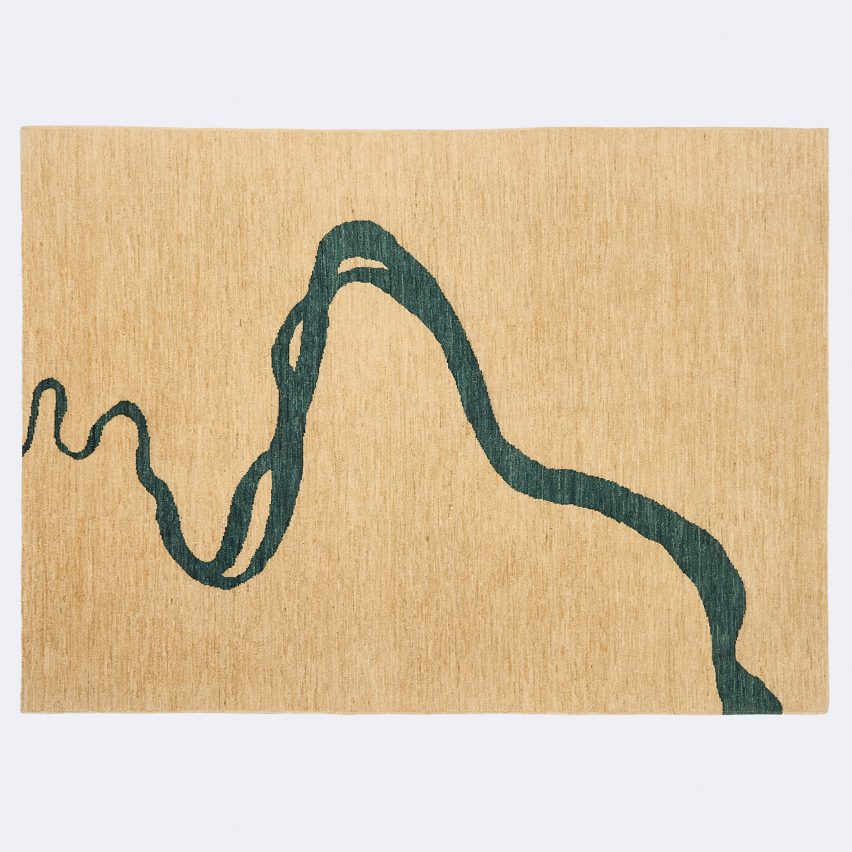
We started with the object because we really believed in the power of the object in telling a story beyond the headlines. Because I had been taking jewellery classes in the old city of Kabul, we worked with some jewellers on a collection of cufflinks. People were actually buying them. So then when we left Afghanistan we set up ISHKAR with the idea of promoting craftsmanship. We wanted to make sure that artisans could promote the objects that they had developed.
Gradually we expanded to collections, which of course take quite a while to develop. We didn't want things to be designed in Europe and made somewhere else; we wanted collections to be co-designed. We wanted everyone to participate in the creation element. I think more and more people appreciate the fact that craftsmen are not just makers doing things that other designers have come up with but actually come up with their own designs.
Amy Frearson: What led you to focus on design and craft in particular?
Flore de Taisne: It started with meeting craftsman when we were in Afghanistan, and thinking that what they were making was incredibly intricate, incredibly beautiful. They were things that we would want to have in our homes.
In the 70s, there were lots of tourists going to Afghanistan. Then the war happened of course, which meant that the tourist trail completely dried up. Before the 70s there were 12 glass workshops in Herat, in northern Afghanistan. Then suddenly you just have one. That's the result of war, of course, but also of Afghans buying cheaper glass from China.
Meeting these craftsmen – seeing what they had been developing, doing, creating, designing – changed our perception of Afghanistan, even though we had been there for three years. And we had customers saying things like, "I've only seen Afghanistan through the eyes of my son that did two tours". They told us we were bringing them a completely different view of that place. So then we did a lot of outreach to other places like Yemen, Mali and Syria, seeing what was there, what kind of craftsmanship was there.
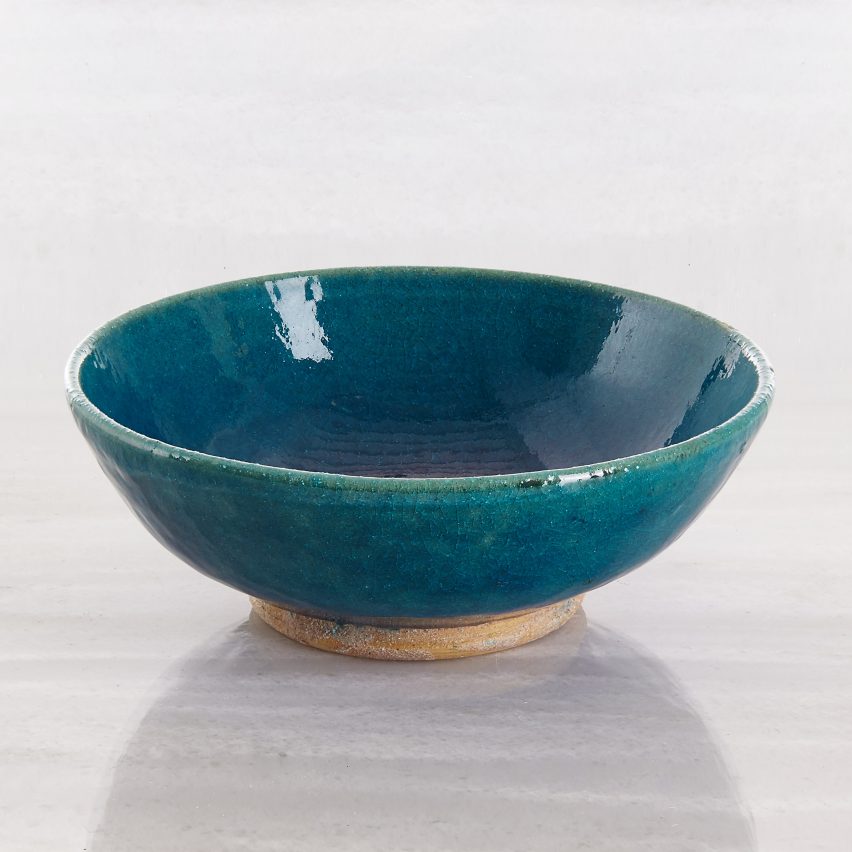
Amy Frearson: Can you tell me more about Ghulam Sekhi, the glassblower in Herat, and how you ended up working together?
Flore de Taisne: When we were going to leave Afghanistan, we went to Herat to meet the glassblower and to see his workshop. We found incredibly big stock rooms, full of glasses collecting dust. We thought, when was this empty? We thought we'd start out by buying 4,000 glasses to see if it actually worked, selling it to wider audiences in Europe, the States or the Middle East.
We've probably ordered around 2,000 glasses per year over the last four years. It doesn't seem like a lot, but it is. Before there was only one glassblower, and now he has taken on two apprentices and opened a second workshop.
Amy Frearson: Can you tell me about some of the other people you've collaborated with? How do you find them?
Flore de Taisne: When we left Afghanistan, we went to Timbuktu and we went to Beirut. We wanted to identify Syrian craftsman in Beirut and Malian craftsman in Timbuktu. We went about it by to talking to people about what represents Syrian culture, what represents Malian culture, and what has been done for centuries. There was a bit of a desk research in terms of what made sense. In England, for example, you would think, right, what makes an English product really English? You probably would think of Wedgwood ceramics or something like that.
So once you've identified the type of craftsmanship, it's meeting the craftsman, seeing what kind of work they're currently doing, and seeing how it has changed since before the war.
In Mali, we got in touch with the Malian culture authority. We then partnered with an organisation called Timbuktu Renaissance, which is working in the music industry in Mali. They are tapped into the cultural sector, so they knew about craftsmen and what made sense in terms of what was currently being made.
In Lebanon, it was very similar, a lot of word of mouth. We visited lots of designers – the Lebanese design scene is huge, so we were introduced to one designer after another. We met Zena Sabbagh, who is this amazing artist living in Lebanon, but originally from Aleppo. We've created lots of different collections with her. We started with small pochettes, just to understand the dynamic between her and the women in her atelier. We like to start small, as we have to be careful of creating things that are too big because they either won't ship or they're too expensive to ship. Then we went on to develop this quilt with her, which of course is way bigger than the pochettes, but uses a lot of the skill sets that they have as an atelier.
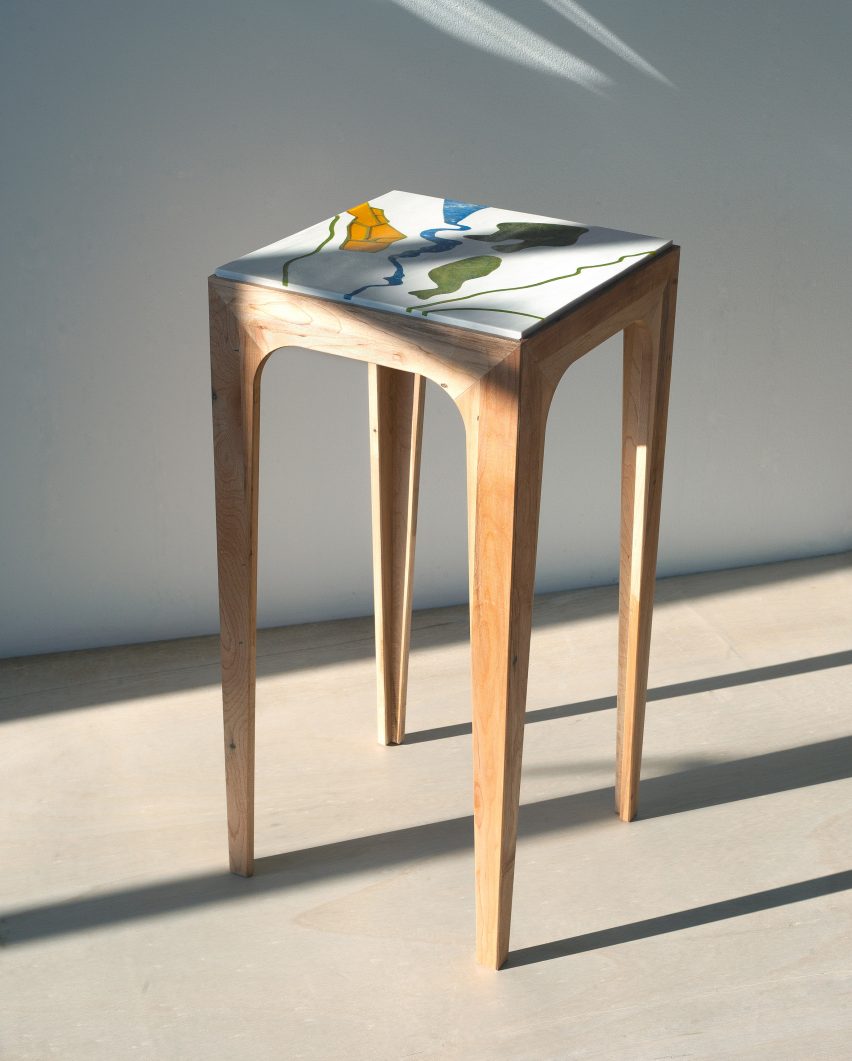
Amy Frearson: Can you explain the business model? Do you more typically sell products that are already developed, or collaborate to create new ones?
Flore de Taisne: It really depends. Some products have already been designed. All the work has been done, right, and the result is amazing, so we know it will work pretty well. In that case, the artisan gets a much higher percentage of the revenue. We think that's only fair if very little work has been done on our ends. That way the majority of the revenue gets back to them.
In other cases, we start with what has already been developed and we just change the colour. Or sometimes a different size will work better. For example, we had these amazing ceramic bowls, but when we tried to ship them they kept breaking. We thought about making them exactly the same but in a smaller size. Not only would this facilitate shipping to England, but potentially also around the world.
In other cases, it starts from looking at design patterns that you can find in different regions and seeing if something can be made out of these patterns. We're doing lanterns in Yemen, where we asked the artisan about other types of inspiration around the city. The doors around the city centre are really intricate and interesting, so there were elements of the doors that were then added to the design of the lantern.
So it can be something that's already done, it can be something that just needs a little bit of change, or it can be something where there's a lot of back and forth, a lot of WhatsApp calls and images being taken, for a result that both the artisans and we are proud of.
Amy Frearson: You've touched on this already, but can you tell me more about the challenges you face logistically? How much harder is it to ship objects overseas from countries in conflict?
Flore de Taisne: It is really important to think about how you get things from one place to another. To give you a very small insight into our shipping challenges, when we wanted to ship the glasses last year we had to wait four or five months. We had customers waiting and prompting us. They were really understanding, but every day, we had different things. If the Taliban had gone to a city, then a checkpoint would be in place and things couldn't get through. When Pakistan wanted something from the Afghan government it closed the border and we got stuck. And the same for Yemen; we waited for a very long time for a shipment because there were riots around the ports, so it was impossible for a supplier to send through the shipment.
I would imagine that a lot of retailers have similar kinds of issues. When you're a small business, you have to deal with these kinds of things. If there is political unrest, you have to just understand that more unexpected things are going to happen.
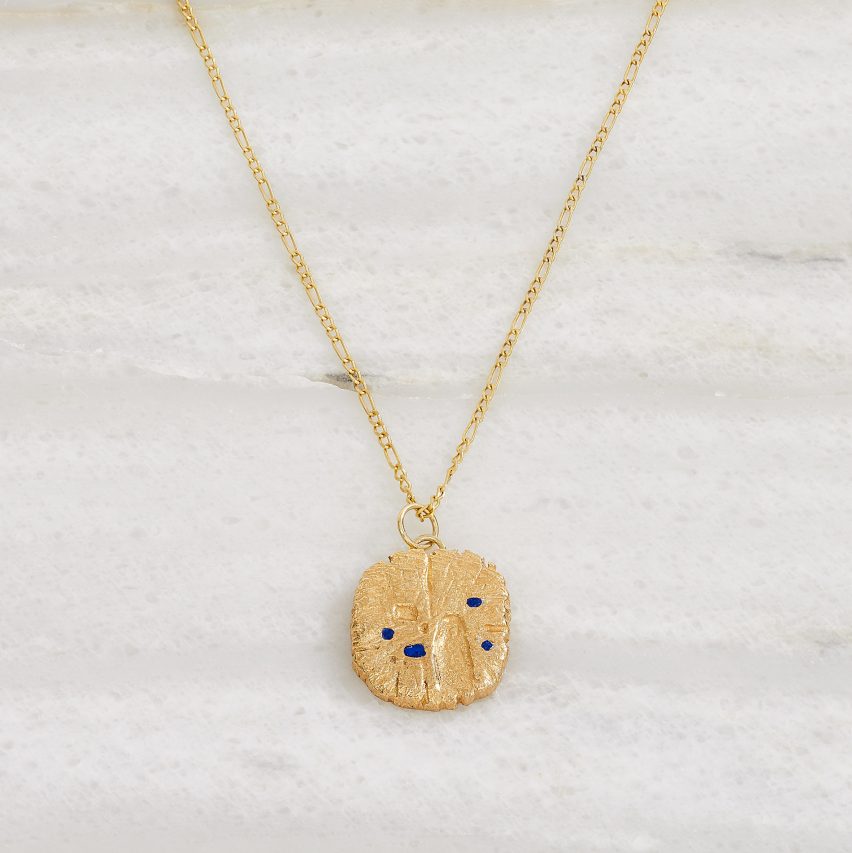
The one thing that it has an impact on, of course, is wholesaling. We're not really able to wholesale, because there's a commitment to send things at a particular date, for things to be on the shelf for a particular period. Retailers will make a particular selection because it matches other types of products that they have on the shelf. We've stopped wholesaling, except for just a few partners that understand the way we work and share our ethos.
Beyond the logistics, it's also important to remember that we are two Europeans working in places like Afghanistan, Syria, Mali and Yemen. We're a platform for everyone's voice and everyone's product, but we're European ourselves. So there are challenges in terms of making sure that we're constantly checking about cultural appropriation, about how we do things, about how collections are developed and things like that. But again, I think that's something every single retailer needs to think about.
Amy Frearson: What would you say are the key distinctions between the way you support these artisans, and the work carried out by NGOs like Turquoise Mountain?
Flore de Taisne: It would be very difficult to work, for example, with the craftsmen in Afghanistan without the support of Turquoise Mountain. They help us with quality control, they help us with transfers to the artisans, and they're completely involved in training the next generation. What I think we bring is more of a knowledge of the markets, in terms of what works and what doesn't.
In some instances, charities have programmes where products are developed to train individuals, but the results are put in a stockroom. No one sees it. Skills potentially improve over a project's duration, but then what's next? What we can bring are the outlets where these products can be sold. And in some instances we can work with the organisations, to tell them what's needed alongside training in a particular field. Artisans anywhere in the world need to be able to promote their product, they need to be able to do business as well as developing the products.
We are an e-commerce platform, not a charity. We're not going to support craftsmen if the product doesn't work.
Amy Frearson: And I suppose that, while your customers are likely to be sympathetic to the cause of struggling crafts, you want them to buy the products because they like them, not as some form of charity? Is that the key to changing the perceptions of these places?
Flore de Taisne: Yes, exactly. We don't want customers to go on our website and buy products out of charity; that's not changing anyone's perception. You might buy for charity once, but you don't come back to buy more.
We hope our customer base is driven by the product design and quality. We take great pride in also making sure that what arrives in the post is well presented, well wrapped, with all the information there about what you've bought. It should be exactly the same standard as any other e-commerce shop that you can find in London. That's definitely part of changing perceptions.
The same with the website. For inspiration, we looked at design websites first and foremost, like the New Craftsman for example, rather than social enterprise websites.
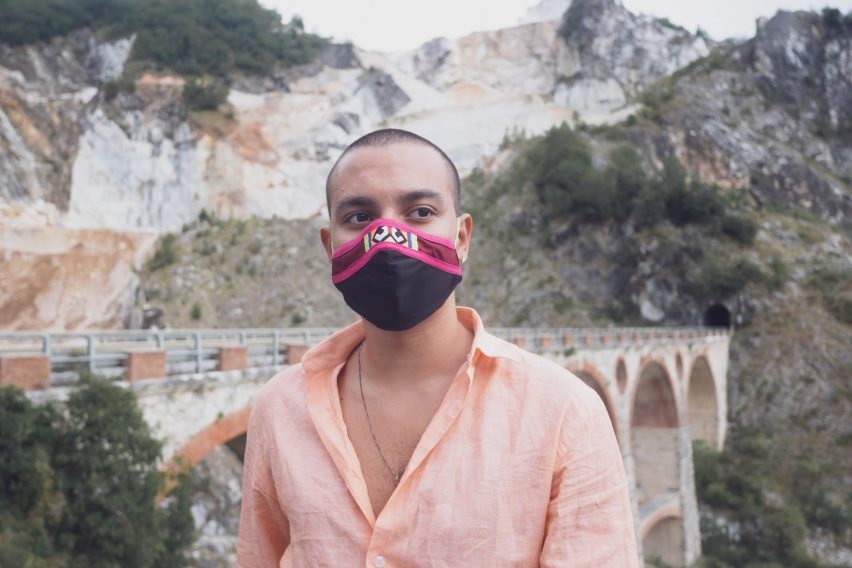
Amy Frearson: In an increasingly mass-produced world, do you think that craft can still have a place?
Flore de Taisne: Being able to appreciate the amount of work that people put into an object is always fascinating. Every single piece is slightly different. Every time I open a new box of glasses, I set a few aside – the wonky ones that might not match anything else. But you can really see the thumb of the maker behind these products. That's so rare in a time when everything is very flat. We're constantly on our phones, constantly on computers and we expect things to be a certain way. Whereas with crafts objects, I think being surprised is always better than getting what you expect, even if it's only in a small way.
Amy Frearson: What else does ISHKAR do, besides selling these objects?
Flore de Taisne: We think there are three ways to change people's perceptions. You change perceptions through objects, one, then the second way is through stories. So we organise events. We recently did an event in our London space with [British designers] Sebastian Cox and Sebastian Conran, along with Nasser Mansouri who is this amazing Afghan craftsman. We like getting lots of people together to talk about design, craftsmanship and other things. It can be anything really, as long as it talks about the places that we work in.
Then beyond objects, beyond stories, there's travel. Travel offers people a way to make their own stories and actually get an understanding of a place directly. That's our most recent addition.